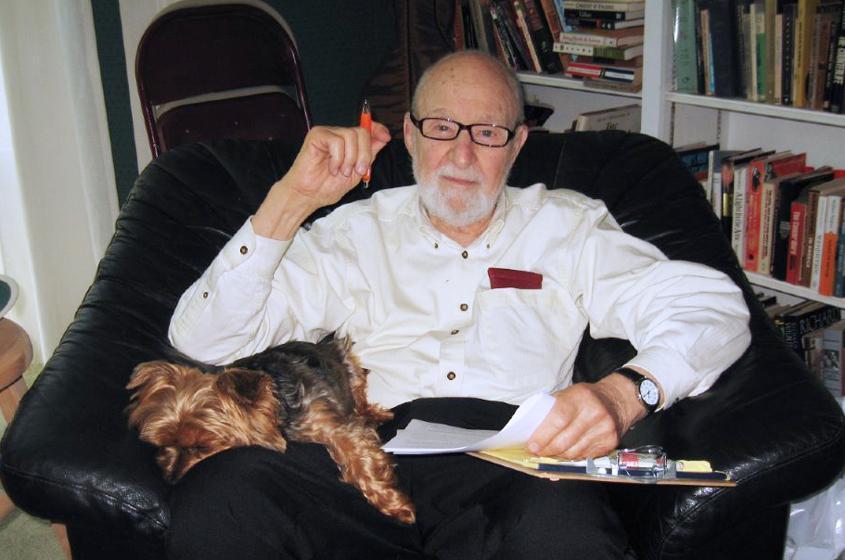Remembering Robert R. Marshak, D.V.M.’45, former dean of University of Pennsylvania School of Veterinary Medicine
Robert R. Marshak, D.V.M.’45, passed away peacefully on October 20, 2020 at age 97. A venerated alumnus of the Cornell University College of Veterinary Medicine (CVM), Marshak received the 2016 Salmon Award for Distinguished Alumni Service, recognizing a long and distinguished career in veterinary medicine in which he served as professor and chair of the Department of Medicine at the University of Pennsylvania’s School of Veterinary Medicine, and dean of the Penn Veterinary School from 1973 to 1987. In 1990, Marshak was inducted into the prestigious National Academy of Medicine, one of very few veterinarians selected for that honor.
Marshak was a mentor to several Cornellians, including Cornell provost and CVM dean emeritus Michael Kotlikoff. With CVM dean emeritus Edward Melby, Marshak established the first specialty of aquatic veterinary medicine in 1978. In a 2011 entry to his blog, Veterinary Legacy, CVM dean emeritus Donald Smith described Marshak as “perhaps the most influential dean of the second half of the 20th century."
"Bob Marshak was constantly on the lookout for students who he thought had promise to be the next generation of veterinary scientists, who could influence the profession," said Kotlikoff. "Many, many outstanding faculty were tapped on the shoulder by Bob and inspired to think big. For some reason I was one of those people, and it had an extraordinary impact on me. I cannot adequately express the debt that I owe him for his confidence, direction, and mentorship over the past 35 years.”
Marshak served on the Cornell CVM Advisory Council from 1977 to 1980. He was a member of the Advisory Council of the Baker Institute for Animal Health, serving for more than 20 years, and was influential in the development of the Baker Institute as a premier site for animal health research.
Lorin Warnick, D.V.M., Ph.D. ’94, Austin O. Hooey Dean of Veterinary Medicine, said Marshak had a “profound impact” on veterinary medicine and education.
“His emphasis on scientific training influenced generations of veterinary students for the better,” Warnick said.
For more on Marshak’s life and legacy, read the Penn Vet in memoriam story




